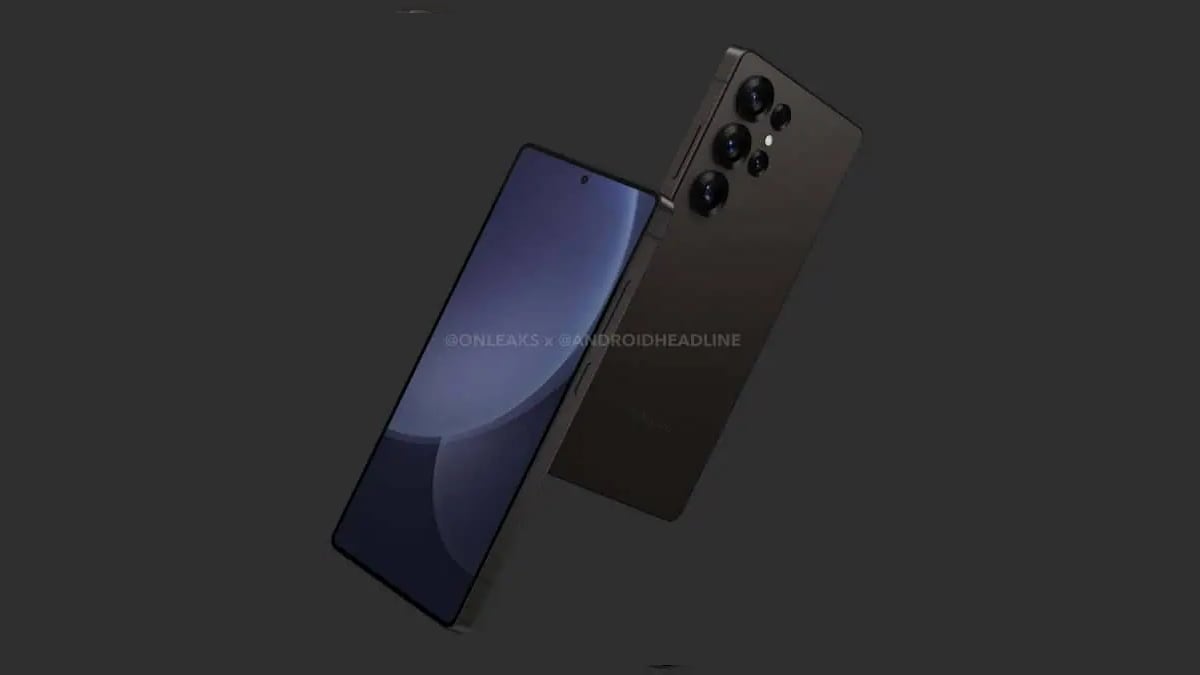
Samsung’s Galaxy S25 Ultra is expected to launch at the beginning of 2025 alongside the Galaxy S25 and Galaxy S25+. We are still a fair distance away from the expected release timeline of the flagship, but plenty of leaks and rumours about the devices have been popping up on the Web. Most recently an alleged set of renders depicting the upcoming Galaxy S25 Ultra design have leaked alongside some specifications. They suggest a flatter design compared to the Galaxy S24 Ultra.
Tipster @OnLeaks, in collaboration with AndroidHeadlines, leaked the design renders of the Galaxy S25 Ultra. The alleged CAD (computer-aided design) renders suggest a more rounded design with flat sides, resembling the design language of the new Pixel 9 and iPhone models.
The renders show the Galaxy S25 Ultra with narrow bezels and a hole punch display design for the front-facing camera. On the rear, four cameras are seen arranged alongside the LED flash. Sensors are shown in all black and this approach appears different from the predecessor.
Samsung Galaxy S25 Ultra Camera Details Leaked
For optics, the Galaxy S25 Ultra will reportedly feature a 50-megapixel ISOCELL JN3 ultrawide sensor, a 200-megapixel H2 primary camera, a 50-megapixel IMX584 telephoto sensor with 5x optical zoom, and a 10-megapixel IMX754 telephoto sensor with 3x optical zoom.
The Galaxy S25 Ultra is said to be lighter than the Galaxy S24 Ultra at 219 grams. The Galaxy S24 Ultra weighs 232 grams. It is claimed to be 8.2mm thick, 162.8mm tall and 77.6mm wide.
Samsung’s Galaxy S25 Ultra is expected to be unveiled in January next year. It is likely to feature a Snapdragon 8 Gen 4 SoC and could ship with AI-based features. It is tipped to pack 16GB of RAM and up to 1TB of UFS 4.1 storage. The handset could carry a 5,000mAh battery with 45W fast charging.
The Galaxy S25 Ultra is said to come with S Pen, and an under-display fingerprint reader. It is likely to have an IP68 rating for dust and water resistance and satellite connectivity.


